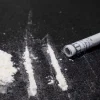Get to the Root of Your Disorder at Dual Diagnosis Treatment Centers
During rehabilitation, it is recommended that clients be assessed for and treated for any co-occurring disorders they may be experiencing alongside their addiction. In other words, co-occurring disorders (dual diagnosis) are the existence of mental health disorders in conjunction with any drug and alcohol addiction.
Relapse rates are twice as high for those who do not treat both diseases together within the first six months after finishing treatment. Fortunately, we have dual-diagnosis treatment centers in Tennessee that can greatly aid in the pursuit of sustained abstinence.
Resurgence Tennessee operates a dual diagnosis treatment center for addiction and mental disorders present together – offering intensive outpatient programs, inpatient, outpatient, group therapy, and other elements that lead to recovery.
What are Co-Occurring Disorders?

A mental health issue and an addiction disorder coexist in a person with a dual diagnosis disorder. About half of the people who struggle with addiction have mental health disorders. It’s not always easy to tell which problem arose first, but it’s apparent that having both conditions at once makes it harder to overcome addiction and start living a sober life.
Drug misuse is one method people use to deal with the stresses of mental illness. Conversely, substance addiction can exacerbate a person’s mental health condition symptoms, trapping them in a vicious cycle that can be very difficult to break free from.
What Are the Initial Signs of a Dual Diagnosis?
It can be confusing for people to try to make sense of how they came to struggle with both substance abuse disorders and mental health disorders. The causes of dual-diagnosis disorders remain unclear despite many studies. However, three elements have been identified by doctors as potential causes of dual diagnosis.
Dual Diagnosis Treatment Options – Call Now!
888-290-5254
Noticing the Mental Health Conditions Present During Dual Diagnosis
As many of the symptoms of addiction are similar to those of mental health challenges, dual diagnosis can be difficult to recognize. Our dual diagnosis treatment centers in Tennessee sets our facility apart as a top-tier center for those suffering from substance abuse and mental health issues. To ensure the greatest likelihood of meaningful and lasting recovery for our clients, we address all underlying mental health difficulties, which is consistent with our belief that treating the whole person is essential.
Our dual diagnosis treatment centers in Tennessee have a significant amount of experience in dual diagnosis treatment. Our dual diagnosis program contains many different types of treatments and therapies for clients going through these challenges. However, it’s important to look for the signs and symptoms, along with the things that may influence dual diagnosis, in order to receive the correct treatment.
Breaking Down Dual Diagnosis Individually

Genes, stress, and trauma all play a role in the development of mental health issues and substance abuse.
Some forms of mental illness increase the risk of substance misuse. To alleviate the distress caused by their mental health challenges, these people turn to narcotics. People with brain-altering mental health challenges, including attention deficit hyperactivity disorder (ADHD) and schizophrenia, are at a greater risk of becoming addicted.
Substance addiction alters cognitive processes. This can lead to issues with one’s mental health. These after-effects may persist for a long time and call for targeted therapy. Depression and anxiety are by far the most typical forms of mental illness.
Having a dual diagnosis is not the result of a single factor. Also, it’s not limited to one single type of mental health disorder. Actually, there are a wide variety of mental health challenges that are commonly included in dual diagnosis.
Those with a dual diagnosis may also face the following difficulties:
- Anxiety
- ADHD
- Bipolar
- Depression
- OCD, or obsessive-compulsive disorder
- PTSD
- Eating disorders
- Panic disorders
- Schizophrenia
Mental Symptoms that Highlight the need for Dual Diagnosis Treatment
Recognizing that you require a dual diagnosis program might be challenging for someone who is stuck in the cycle of addiction. They could be unsure of whether or not their symptoms are related to their addiction. In order to get dual-diagnosis treatment, a client must be evaluated at one of many dual-diagnosis treatment centers.
There are a number of warning indications that someone needs this kind of help, including:
- Isolating themselves
- Having fits of rage or physical violence
- Too much or too little sleep
- Feeling anxious or tense all the time
- Distraction from even little activities
- Having hallucinations or delusions, even while sober
- Extreme melancholy, despondency, or a sense of having no value as a human being
- The inability to work or attend school
- Employ routines or habits, such as rocking
- Mood swings and surges in energy
Substance Abuse as a Means for Coping with Mental Disorders
An individual with a history of mental health diagnosis is more likely to suffer from a dual-diagnosis illness. The same holds true for those who have experienced either physical or emotional abuse in their past or who come from a family history of mental illness.
What Does Our Treatment Program Consist Of?
Dual diagnosis treatment addresses substance abuse and mental health issues, unlike conventional rehabilitation programs. Medications and talk therapy are used in this approach to treatment. Furthermore, this method reduces the signs of mental distress.
Substance abuse driving factors are pinpointed and dealt with as part of this process. People with dual diagnoses have a very low chance of sobriety if they do not receive this degree of support. The impact of mental health problems on a person’s daily life is significant.
It can impair their judgment and cause them to act in unhealthy ways. In the end, it can hinder their social interactions, academic performance, and employment prospects. When it comes to dual diagnosis, there is no “magic pill” treatment that would ensure the greatest possible outcome.
Instead, it is important to have the freedom to construct a treatment plan that is tailored to the specific symptoms and needs of each client. Which specific substance(s) and mental health issue(s) will determine the best course of action?
The Varieties of Dual Diagnosis Care at Our Treatment Program

A person with a dual diagnosis has more on their plate than someone who is seeking treatment for addiction alone, thus, they are automatically classified as a high-risk client. As a result, most Tennesseans who have mental health conditions and substance abuse problems will seek help at one of the state’s many residential treatment centers, IOPs, or PHPs.
However, Resurgence Tennesse may provide a more robust lineup of treatment options. Clients may choose to participate in any combination of the three forms of dual diagnosis treatment depending on their specific needs.
Inpatient Care
It is common advice that people with dual diagnoses should seek residential therapy, which requires them to live on the facility’s grounds. This is due to the fact that clients can get care that is consistent and available whenever they need it, 24 hours a day, 7 days a week, 365 days a year.
You’ll feel at ease in the treatment setting when you can open up about your experiences. By doing so, clients will have a deeper comprehension of their dual diagnosis and get the most out of their therapy sessions.
Intensive Outpatient
When you’re in an intensive outpatient program (IOP), you do not have to live at the institution during your treatment, but you still receive the same level of care as you would in residential treatment.
Instead, clients in the intense outpatient program will spend most of their days in treatment before returning to their homes or sober living facilities. Clients are strongly encouraged to return home to a drug-free environment.
Partial Hospitalization (PHP)
Clients in partial hospitalization programs must travel to the facility for the integrated treatment of both disorders, but they need not remain there as long as they would in an inpatient program. They will mostly participate in therapeutic activities while at the center, but they will have access to medical care as well.
The ideal candidates for Resurgence Tennessee’s dual diagnosis treatment programs are people who have a stable living situation and daily routine but who could benefit from ongoing counseling and medical care.
Commonly Used Methods
Medication-assisted therapy (MAT), cognitive behavioral therapy (CBT), and contingency management are some of the most often used methods in our treatment program. Since MAT includes the use of pharmaceuticals in the treatment of mental health conditions, it is quite beneficial to many people.
This can alleviate symptoms and allow the client to concentrate on healing. Resurgence Tennessee is located between Nashville and Chattanooga and provides dual diagnosis therapy because of how frequently our clients arrive in need of it. Substance abuse therapy and mental health issues are treated simultaneously in an integrated approach. By addressing both physical and mental health concerns simultaneously, someone can make progress toward sobriety without aggravating existing conditions or falling back into old habits.
By receiving care at a facility that specializes in treating people with dual diagnoses, someone you may be able to save money by not having to pay for services twice.
The integrated treatment utilizes a multidisciplinary group of experts as opposed to seeking assistance from a variety of treatment facilities at different points in time. Individualized treatment plans are developed in tandem with the client. Medication, psychotherapy, education, and possibly even family or group therapy could all be part of their treatment strategy.
What You Can Expect From Our Tennessee Dual Diagnosis Rehab Center

After determining the individual’s needs through an evaluation, we formulate an approach to treating mental health issues. As an example, talk therapy is a common method for assisting people with mental health issues to work through their thoughts and feelings. Having the diagnosis explained by a therapist is also helpful.
Together, they can figure out how to manage the symptoms or maybe get rid of them altogether. Alternative treatments for mental health issues, such as equine therapy and holistic medicine, show encouraging results.
Services in Tennessee that Treat Mental Illness and Substance Misuse
Our next step is to establish which drugs are required. There are those whose medication requirements are temporary. In the long run, they help those who use them. Depression, anxiety, and other mental health issues can be managed with the use of prescription medicine.
Each person’s mental health is different, and we teach them how that relates to their addiction. Their addiction might negatively impact the mental health of the individual to drugs or alcohol. Fortunately, the therapy that begins for dual diagnosis in our program can be continued when a person leaves. By learning these skills, you can take control of your mental health for the rest of your life.
24 Hour Dual Diagnosis Treatment – Reach out Now!
888-290-5254
Resurgence Tennessee for Dual Diagnosis Treatment
There is little chance that your mental health symptoms will go away even if you are able to abstain from drugs or alcohol. We at Resurgence Tennessee, a dual diagnosis treatment facility near Nashville, Tennessee, will provide you the same amount of attention to your addiction as we do to your mental health.
To find out more about how we can help you overcome your mental illness concerns combined with substance use disorder, contact a member of our admissions team today.





